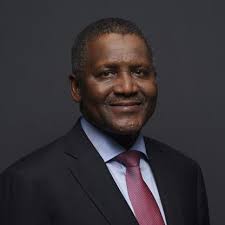By Atoyebi Nike
A fresh controversy has erupted over the actual volume of petrol consumed daily in Nigeria, following a claim by billionaire industrialist Alhaji Aliko Dangote that official figures are inflated to mask corruption, particularly during the now-defunct fuel subsidy regime.
The Nigerian Midstream and Downstream Petroleum Regulatory Authority (NMDPRA) currently estimates daily consumption at around 50 million litres, but Dangote argues the actual figure is closer to 33 million litres, a significant 17 million litres difference.
Speaking during a recent visit by Global CEO Africa to the Dangote Refinery, the business mogul described the oil sector as riddled with graft. “It’s a mafia business. I initially didn’t want to enter it,” Dangote said, claiming that past reports pegged daily consumption as high as 90 million litres, a figure he called “unrealistic,” considering Nigeria’s actual vehicular demand.
He alleged that inflated figures were used as a smokescreen to siphon off funds during the years of government fuel subsidy payments.
However, energy stakeholders remain divided. The NMDPRA, established under the Petroleum Industry Act (PIA), remains the statutory authority on fuel consumption and supply regulation. Legal and energy analyst Taiwo Ogunloye, of the Institute of Energy and Extractive Industry Law, stated that while Dangote may possess operational data, only NMDPRA has the comprehensive mandate to provide verified national figures.
“NMDPRA’s data is critical because it regulates and monitors permit holders and licensees. Dangote’s claims, though worth noting, may not capture the full national picture,” said Ogunloye
He added that allegations of corruption must be backed by evidence. “Saying there’s corruption is serious. Unless Dangote has documents or records to support this, it remains a weighty but unverified claim.”
The National Bureau of Statistics (NBS) and Central Bank of Nigeria (CBN) also release fuel-related data based on import and trade records. However, some independent oil refiners are now calling for a neutral audit to determine Nigeria’s actual consumption levels, warning that failure to clarify the figures will continue to stir suspicion and mistrust in the sector.


